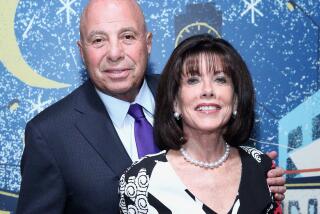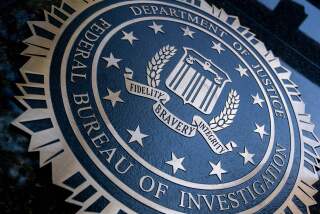Reporter who added some swagger to the D.B. Cooper legacy comes clean
Just two weeks after the FBI finally shut down its active investigation of the 45-year-old D.B. Cooper skyjacking case, James Long has come forward to confess his role.
“I got the name wrong,” the former reporter said this week, admitting to a cardinal sin in journalism. But he decided to no longer remain quiet while another reporter who died 15 years ago took the blame for turning hijacker Dan Cooper into D.B. Cooper.
Long can laugh about it today, and the other reporter died knowing he’d been credited for a scoop that night. The error didn’t hinder the investigation, since neither D.B. nor Dan Cooper was likely the skyjacker’s real name, authorities figured.
But let the record show that it surely wasn’t D.B., Long says now. He retired in 2003 after a respected career as an investigative reporter for the Oregonian, but was working at the since-shuttered Oregon Journal in Portland, an evening paper, when the hijacking unfolded on Thanksgiving eve, 1971.
His deadline story, and a United Press International wire service story based on his report, were among the first to report a Northwest Orient Airlines 727 was hijacked by a man in a black suit and tie named D.B. Cooper.
He boarded at Portland and during the flight handed a ransom note to an attendant, and then showed her what appeared to be a bomb. The plane landed in Seattle where passengers got off and money and parachutes were brought aboard — meeting the hijacker’s demands. Cooper, alone in the cabin, lowered the back stairs and parachuted out over southwest Washington state with $200,000 in cash and his bomb.
About $6,000 in marked bills was found nine years later near the Columbia River. Dan Cooper’s fate was never determined. But as the years passed, it was D.B. Cooper who grew into a legend.
“Either because the Northwest [source] gave it to me wrong or because the noisy [phone] connection helped me misunderstand it,” Long says, he wrote down D.B. rather than Dan that day. As history will verify, the wrong name stuck.
The enigmatic initials D.B., as opposed to the more pedestrian Dan, may have even helped stoke Cooper’s folk hero image that spawned books, movies and a cottage industry of D.B. novelties such as grow lights, caps and T-shirts – including one for a child emblazoned D.B. Pooper.
America’s only unsolved hijacking also produced a seemingly endless line of D.B. suspects. When the FBI announced July 12 that it was inactivating the probe (but still accepting “material” evidence or tips), the agency had investigated and cleared 1,053 suspects, four of them through DNA testing.
Long says he had told others about his mistake, and fellow reporters and editors knew about it from the beginning. Then last week he read a Columbia Journalism Review story that prompted him to go public.
CJR recounted how late United Press International reporter Clyde Jabin was long thought of as the reporter who got the Cooper name wrong. As CJR writer William Browning explained in his story, he was attempting to determine how Jabin “came to identify one of the most famous American criminals as ‘D.B. Cooper’ on Nov. 24, 1971.”
One of two theories that endured is that Jabin simply made a mental error, Browning determined. “The other involves information an FBI agent gave Jabin that turned stale after it hit the wire.”
Jabin, who retired in 1985, died in 2001. He apparently didn’t mind the kidding he got at the UPI bureau, and his widow, Joan Jabin, told Browning he was always proud of his reporting that evening. That the world came to know the mystery man as D.B. Cooper was proof, he would say, that his story was first.
After seeing the CJR story, Long decided it was time to take responsibility. “It was my mistake,” he wrote in an email to the magazine. CJR contacted him and followed up with a story Friday. An editor’s note stated that while Jabin “played a role in spreading the erroneous name D.B. Cooper, it turns out the name itself originated with another journalist.”
Long says that’s indeed how it happened. In an email to the Los Angeles Times, he writes:
“Browning had no ready way of knowing that UPI and the Oregon Journal were both located basically in the same newsroom -- only a partial partition with windows and a door separated them. To get to UPI, you walked about five steps from our city desk and you were there. Everybody knew everybody and UPI was entitled to Journal stuff and vice versa.”
UPI reporters would scoop up duplicates of the Journal’s typewritten stories, rewrite or retype them, and send them out on the wire. Long says he doesn’t remember all the details, but after getting the garbled name-initials from his airline source, “I wrote a quick story because I was writing for our one-dot edition with a deadline of about 3:30 or 4 [p.m.], and I remember we were pushing it because they kept saying they had to have it now.”
He didn’t remember if Jabin himself came in for the copy, “but he would have been waiting to pounce on the dupe -- my carbon -- as soon as it hit the city desk. So Clyde likely would have been the first to disseminate D.B. Cooper, on the UPI wire, which meant every radio and TV station got it, although it was a Journal story.
“So that’s the full account and you’re the first to get it. The FBI did put out a press release, I think it was the next day, saying the hijacker used the name Dan Cooper, and we did run that statement, but it never caught on,” he said.
“Everybody just kept saying D.B., and we gave up trying to change it.”
Anderson is a special correspondent.
ALSO
Transcript: Obama’s Democratic National Convention speech
Feds to require all-cash buyers of L.A. County luxury homes to disclose identities
Mysterious streak of light across night sky is re-entry of Chinese rocket, expert says
More to Read
Start your day right
Sign up for Essential California for news, features and recommendations from the L.A. Times and beyond in your inbox six days a week.
You may occasionally receive promotional content from the Los Angeles Times.






